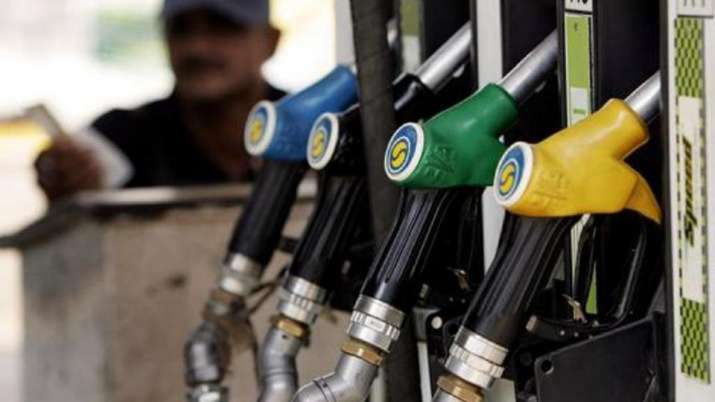
Last year, the government had also allowed blending of ethanol extracted from surplus cereals.
Highlight
- Diesel may become costlier by Rs 2 per liter in most parts of the country from October 1.
- In the budget, Finance Minister Nirmala Sitharaman said that there may be an increase in petrol prices in some places like North East.
- Revenue Secretary Tarun Bajaj said the blended fuel has been discussed with the Petroleum Ministry.
Diesel price may go up by Rs 2 per liter in most parts of the country from October 1, while some places like the North East may see an increase in petrol prices, as Finance Minister Nirmala Sitharaman sells ethanol without blending Additional excise duty is levied on inbound fuel. Biodiesel.
At present, 10 per cent ethanol extracted from sugarcane or surplus food grains is mixed or blended into petrol to reduce oil import dependence and provide farmers with an additional source (meaning 10 per cent of ethanol blended with 90 per cent petrol). ) of income.
Ethanol blended petrol is supplied in 75-80 per cent of the country as the availability of ethanol and logistics supply in the remaining areas are constrained. On the other hand, only experimental blending of biodiesel extracted from non-edible oilseeds takes place in diesel – the most widely used fuel in the country.
“Fuel blending is a priority of this government. To encourage efforts for blending of fuels, unrelated fuels will attract an additional differential excise duty of Rs 2 per liter from the first day of October 2022,” Sitharaman said in her budget speech. Lok Sabha.
Read also | Budget 2022: What the common man needs to know top point
While the additional duty would prompt oil companies to purchase more ethanol for blending into petrol and arrange logistics for transportation to deficient areas, it is unlikely that the country would be able to manufacture biodiesel on the scale required for blending into diesel. able to build infrastructure. next 8 months, industry executives said.
In the post-budget press conference, Revenue Secretary Tarun Bajaj said that the blended fuel has been discussed with the Petroleum Ministry.
“We have also collected data on what is not being blended and this is something to motivate petroleum companies to make sure they do mix. We do not wish to collect tax because it is too low. The wish is that mixing happens and to an extent, it benefits the country,” he said.
The budget proposal would mean that areas that do not have a supply of blended fuels would see higher rates than areas selling blended fuels. Presently, there is no supply of ethanol-blended petrol in North East and parts of Jammu and Kashmir and South as well as some remote areas of Rajasthan.
Industry officials said it is possible to increase the supply of ethanol-blended petrol in un-served parts of Rajasthan and the south, but supply will be disrupted in the northeast.
Diesel, on the other hand, is largely sold without any blending in the country.
“For promoting the blending of motor spirit (commonly known as petrol) with ethanol/methanol and for promoting the blending of high-speed diesel with biodiesel, an additional
The memorandum explaining the provisions of the Finance Bill states that the basic excise duty on petrol and diesel at Rs 2 per liter, intended to be sold without mixing to retail consumers, will be effective from October 1, 2022.
Last year, the government pushed ahead with its previous target of achieving 20 percent ethanol-blending with petrol by 2025, five years ahead of its previous target, to help reduce dependence on costly oil imports. 10 percent ethanol blending is to be achieved in 2022.
India is the world’s third largest oil importer, relying on foreign suppliers to meet more than 85 percent of its oil demand. Officials said that at present the average ethanol blending is 8.5 per cent. For the sugar year 2021-2022 (November 2021 to October 2022), 10 per cent blending would require 4 billion liters of ethanol.
To achieve 20 percent blending by 2025, and to meet the requirement of chemical and other sectors, about 12 billion liters of alcohol/ethanol would be required. The sugar industry will divert 6 million tonnes of surplus sugar to produce the required 7 billion liters of ethanol, while another 5 billion liters will be produced from additional grains to produce ethanol.
Last year, the government had also allowed blending of ethanol extracted from surplus cereals.
A provision of Rs 4,000 crore has been made for subsidy on cooking gas elsewhere in the budget. This may be inadequate if international crude oil prices continue to rise and there is resistance from consumers to further hike in prices.
Read also | Budget 2022: Rs 5.25 lakh crore allocated for defense
Read also | Budget 2022: Delhi Police allocates Rs 10,355 crore
,